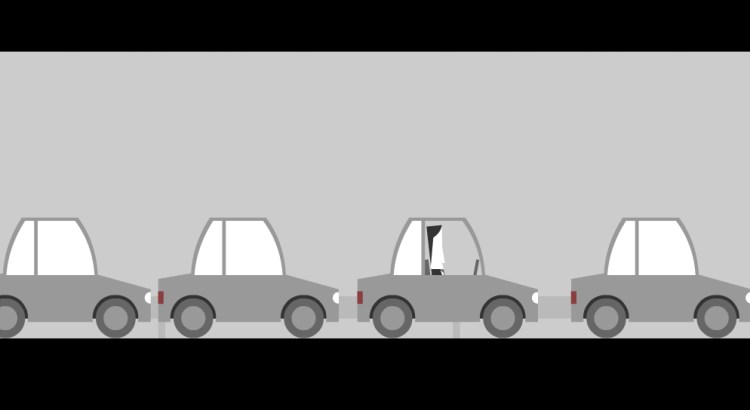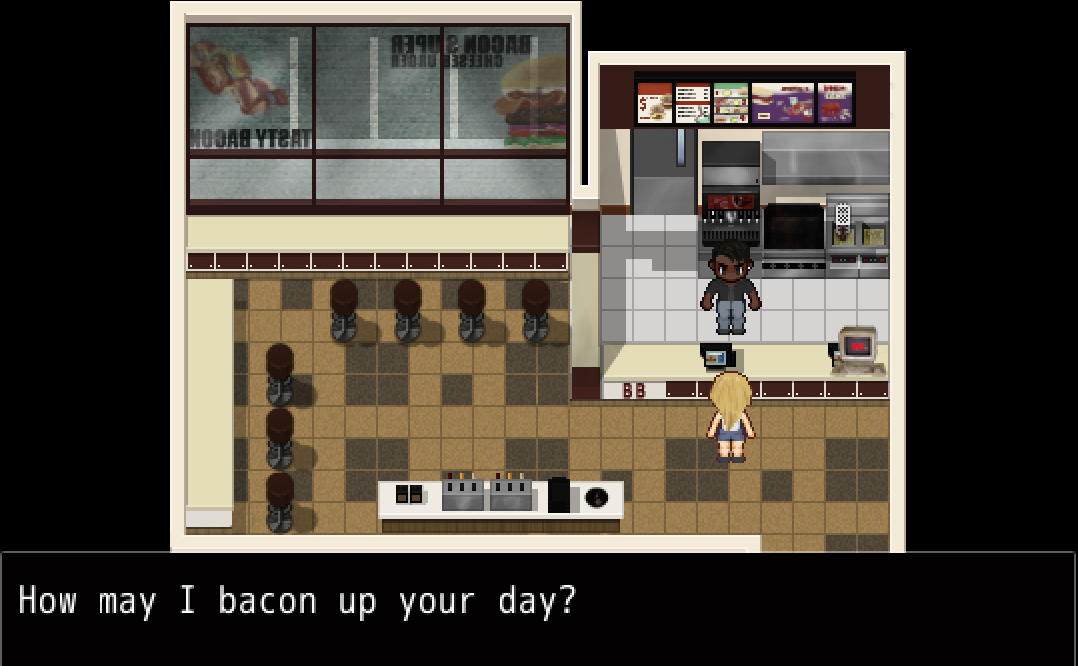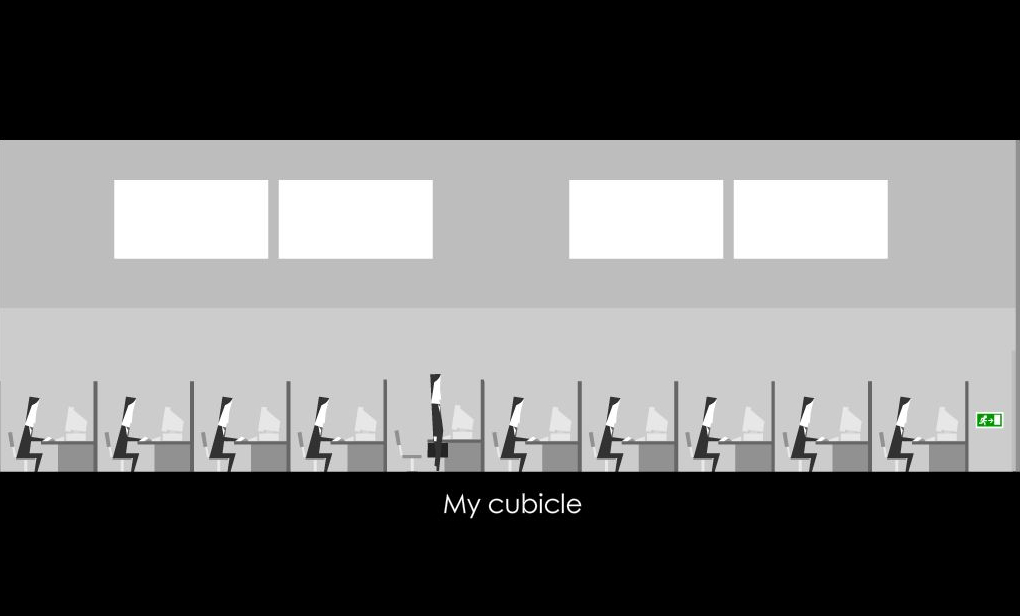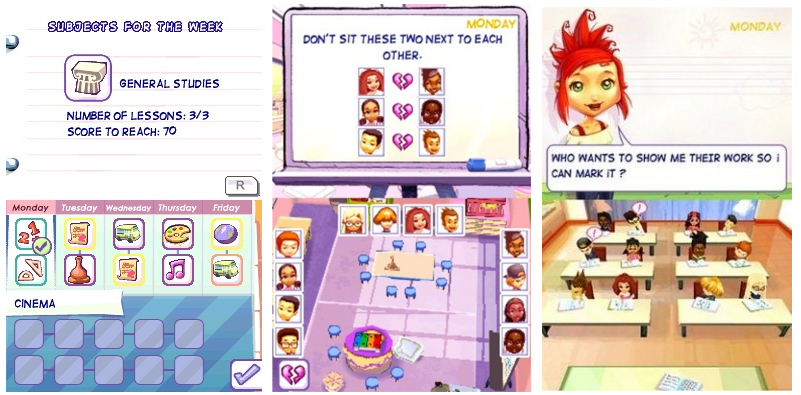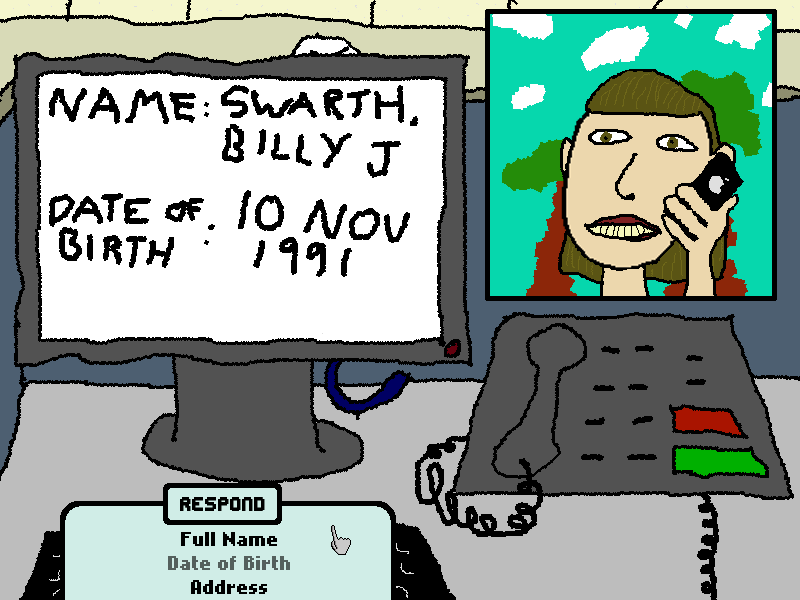Not all games are fun. Not all games are meant to be. Some are tedious, monotonous, and occasionally depressing. A bit like real life.
We’ve selected 12 titles below that successfully recreate the everyday grind.
They fall under two categories: those that are deliberately downbeat, and those whose subject matter and implementation make them inexorably dour.
Always Sometimes Monsters
Developer: Vagabond Dog
Platform: PC
Pricing: $9.99, direct from the developer
In a nutshell: The RPG where you make terrible life choices and work crappy jobs
Not many games task you with making burgers in a meat-packing plant. But that’s exactly what you’ll do in Vagabond Dog’s unique take on the role-playing genre. You’re shipped there on a bus, put on the clock, and the agency that sent you takes a huge cut of your pay. It sucks.
Meat-packing is just one small element of a game that takes a refreshingly honest look at life, forcing you to make dubious moral decisions, work terrible jobs, and eat badly.
Always Sometimes Monsters doesn’t give much away; there’s no tutorial to speak of. So, just like in real life, you have to blunder through as best you can, hoping the choices you make won’t be a complete disaster.
The writing in Always Sometimes Monsters is refreshingly real, and even the most impressive characters turn out to be deeply flawed — even the developers themselves, who can be found taking an endless coffee break within the game, procrastinating over their creation.
Every Day the Same Dream
Developer: Paolo Pedercini
Platform: Browsers (Flash)
Pricing: Free — play it here
In a nutshell: Peeking through the cracks of a menial office existence
Eat, sleep, work, repeat.
Trapped in a depressingly familiar routine, the protagonist of Every Day the Same Dream seems doomed to endlessly repeat his daily grind.
Small subversions are just a step away, however, and while playing this game, you’ll find that you need to do something to break from the norm.
A fine commentary on the monotony of office life from developer Paolo Pedercini, Every Day the Same Dream is a flash game that you will make you think. And it’ll only take you five minutes to play.
Take some time out from your own grind to experience someone else’s.
Imagine: Teacher
Developer: Magic Pockets
Platform: Nintendo DS
Pricing: Out of print — find it on eBay or Amazon Marketplace
In a nutshell: How to turn your kids off a career in teaching
As a sometime elementary school teacher, I could have told publisher Ubisoft that turning the classroom into a game wasn’t a winning idea. Sure, the profession has it its moments, but the everyday demands of marking, attending meetings, and dealing with disruptive pupils don’t naturally make for a fun and diverting adventure.
Amazon customer Janine E. sums Imagine Teacher up beautifully in her 1-star review: “This game is a wast [sic] of money. It just asks you to do the same thing over again. It is not fun.”
Welcome to the world of teaching, Janine.
If you can look beyond Janine’s review, you’ll find a game that asks you to create lesson plans, mark children’s work, and even clean up the classroom (presumably the janitorial budget has been spent). Then, much like Groundhog Day, you’ll get to do it all over again.
I Get This Call Everyday
Developer: David Gallant
Platforms: PC, Mac
Pricing: $2.00, direct from developer
In a nutshell: A call center simulation that you can only lose
Don’t let the Microsoft Paint aesthetics fool you — David Gallant’s recreation of a terrible call center job is as real as gaming gets. And as depressing.
Gallant was working a day job in a customer service center when he made I Get This Call Every Day. He was responsible for updating customer account information. In Gallant’s own words, the job turned him into nothing but “a numb meat popsicle.”
Whatever you do in I Get This Call Every Day, you are going to lose. You need to to deal with a single customer’s call, picking your responses from a fixed set of options, but failure is inevitable as you teeter between being polite and abusive while your frustration level grows. “Lose politely, or lose spectacularly; the choice is yours,” says Gallant.
Go play it, then be grateful that you don’t work in a call center yourself. Unless you actually do.
